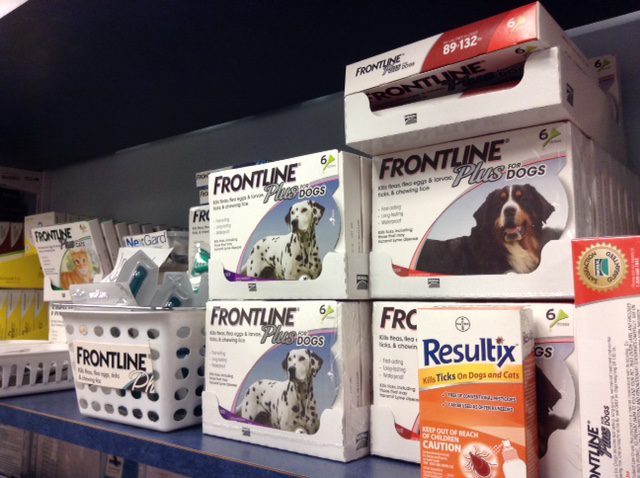Cats and Pyrethroid/Pyrethrin poisoning is a very common problem (Pet Poison Helpline claims it’s the second most common call they receive) so we felt it appropriate to dedicate a whole post to it.
What is a Pyrethroid/Pyrethrin?
- Pyrethroids and Pyrethrins are chemical compounds that are often found in many household insecticides, including flea and tick prevention medications. They are particularly toxic to cats because cats are unable to break down the chemicals due to their liver metabolism.
It’s important to use species-appropriate flea and tick medication. Cats should not be given flea and tick prevention for dogs and vice versa. Also take into consideration the size of your pet when applying these products as wrong dosage has the potential to lead to adverse affects.
A cat can get Pyrethroid poisoning through licking and grooming a dog. Keep your pets separated after you have applied flea and tick medication. The Pet Poison Prevention website states:
“…on those days when you apply any type of insecticidal product to either animal, they need to be completely separated until all the products have dried. Same thing goes for the dog licking the cat. We don’t see quite the severity of clinical signs with dogs exposed to cat products, but they can have drooling, vomiting and diarrhea with ingestion.”
Cats exposed to ei ther of these chemicals can exhibit shakiness and seizure-like symptoms. The best way to ensure that you are giving your pets the appropriate medications is to buy said medications from your vet and follow the application directions.
ther of these chemicals can exhibit shakiness and seizure-like symptoms. The best way to ensure that you are giving your pets the appropriate medications is to buy said medications from your vet and follow the application directions.
Recent Posts
About Us
Ann Arbor Animal Hospital is a locally-owned animal hospital operating for over 90 years in Ann Arbor, MI.
